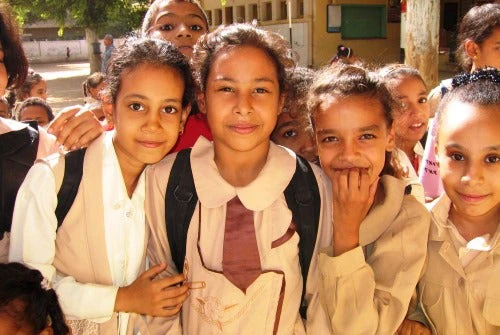 “Is this meant to be a band-aid?” one participant intervened. This intriguing comment, made during consultations held in Cairo on an education initiative by the World Bank Group and Islamic Development Bank, describes what many people think about past interventions in Egypt’s education system.
“Is this meant to be a band-aid?” one participant intervened. This intriguing comment, made during consultations held in Cairo on an education initiative by the World Bank Group and Islamic Development Bank, describes what many people think about past interventions in Egypt’s education system.
There is consensus among all those I meet or listen to that education is the top priority in Egypt. It is clear in formal and informal surveys and discussions. When the World Bank held other consultations before drawing up its Egypt strategy for the next five years, education topped the concerns of both government and non-government agencies about the main socio-economic challenges facing the country.
More recently, during those Education for Competitiveness (E4C) consultations held in Cairo, there was little tolerance for more delays to real reforms, or patience for more changes. The basic steps expressed by the participants resonate with international good practice, suggest countries should focus first on early childhood education. This is of particular importance to Egypt, where some children from poorer backgrounds may have less opportunity to develop their potential. Another priority is to focus on reading and math early on. Lifelong learning systems also require a balanced approach towards general education and more specific Technical Vocational Education and Training (TVET) with clear pathways to the job market.
Time for Treatment
Innovation in education should also be a core element at the level of policy making, as well as design and delivery. “We must move quickly; and it must work this time,” as another participant said. In addition to nurturing cognitive and technical skills in children, many participants felt education needed to cultivate non-cognitive skills, including entrepreneurial and other life skills. These should be included as a core element of teaching in all grades. Career guidance should also be introduced from Grade 9 (when students are about 14 years old).
Another suggestion was using untraditional tools, such as the media, in education, and emphasizing the role of civil society in informal education.
Education is a shared mandate, not one limited to government ministries, and it seems critical to establish true partnerships with all stakeholders, with civil society and the private sector, to achieve results in learning, employability, and functional citizenship. Roles and responsibilities should be clear. This would require legislative changes.
Accountability should be established at all levels. Any real reform cannot possibly happen without establishing a culture of accountability in the hearts and minds of headmasters, teachers, and parents, Participants raised issues like the monitoring and evaluation of various interventions, and using student assessment as a way to hold teachers and headmasters accountable.
To start off with, two issues need to be addressed urgently: access and overcrowding and capacity development for headmasters and teachers.
Inequality in education needs to be addressed, too. This was brought up during discussions in two contexts: (i) lower socio-economic students are more likely to be tracked into technical and vocational training (TVET); and, (ii) when they leave school, poorer students are less likely to be admitted into college faculties that lead to the better jobs, mostly because of the costs incurred in private tutoring and the secondary school exit exam.
Many people spoke about the cost of private tuition, and how the current educational set-up in Egypt does not really guarantee “free education”. It seems crucial to examine the inefficiencies existing in education spending, and acknowledge that free education has not yet led to equity of opportunities either in learning or in the job market.
Now is the time for everybody to do something different about education in Egypt, so that forthcoming support will be neither painful nor superficial.
The Education for Competitiveness (E4C) initiative is a joint regional initiative created by the Presidents of the World Bank Group and the Islamic Development Bank. It aims to build on the wealth of expertise in both institutions; to identify successful educational models worthy of replication and scale-up; and draw on commonalities towards collaboration within countries in this region. E4C aims at addressing: (i) current rates of citizens’ dissatisfaction with the education system; (ii) absenteeism [for both teachers and students]; and (iii) employers’ struggles to find employable citizens.


Join the Conversation